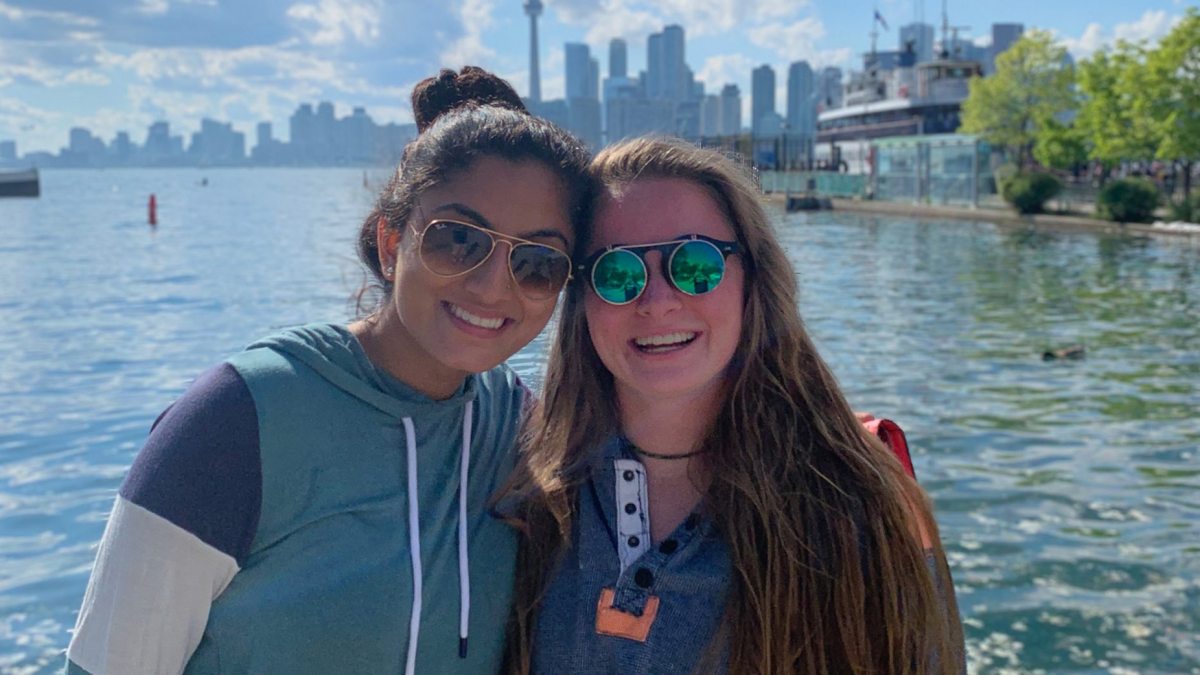Morehead-Cain Scholars give back through civic collaboration projects
Dozens of Carolina's Morehead-Cain Scholars are spending the summer spread across the country — from the Blue Ridge Mountains to Denver — helping communities tackle various challenges.

More than a dozen teams of scholars will head out to cities this summer for their Civic Collaboration projects. Rising second-year scholars will investigate their designated communities’ challenges and opportunities and propose meaningful solutions.
This year’s dilemmas cover everything from urban planning and historical preservation to economic development and agriculture.
Morehead-Cain extends sincere gratitude to the many alumni and scholars who helped secure Civic Collaboration placements for this year’s cohort, in particular: Barbara Rosser Hyde ’83, Dennis Whittle ’83, Buff Grace ’91, Laura Hogshead ’00, Liz Kistin Keller ’04 and Justin Hadad ’21. The robust Summer Enrichment Program experiences are only possible through “constant community support and partnerships,” said Scholar Advisor Montez Thomas.
“The Civic Collaboration summer experience provides an outstanding opportunity for scholars to embrace all aspects of the Morehead-Cain Program’s aspirations,” said Thomas, who oversees Civic Collaboration for the Morehead-Cain Foundation’s advising team. “Our alumni, scholars, and community partners have been key advocates of this initiative since its inception, and we are grateful for their invaluable support.”
Keep reading to learn more about what scholars will be up to in their assigned cities.
Innovation, sustainability
In Denver, Colorado, scholars will identify locations to install public charging stations for electric vehicles. The project will involve determining criteria for site feasibility and how increased stations might accelerate EV adoption. (Host: City of Centennial)
From the “Scenic City” of Chattanooga, Tennessee, scholars will look at the impact of “smart city” investments and technologies on quality of life, as well as its intersection with social determinants of health. (Host: The Chattanooga Enterprise Center, a nonprofit devoted to establishing the city as a hub of innovation and entrepreneurship)
In the Twin Cities region of Minnesota, scholars will evaluate barriers to increased solar energy and energy efficiency for residents and businesses, and how grass-roots initiatives might overcome them. (Host: Buff Grace ’91 of Minnesota Interfaith Power & Light, an organization focused on climate justice through partnerships with faith-based communities. Buff is the solar outreach manager for MNIPL.)
Urban planning
Amidst North Carolina’s Blue Ridge Mountains, scholars will research historical land development and demographic patterns in Asheville and propose anti-gentrification strategies for the city’s urban planning efforts. (Host: The Planning and Urban Design Department, City of Asheville).
Scholars in Raleigh will tackle the affordable housing crisis in North Carolina by assessing housing strategies and solutions in other states. (Host: Laura Hogshead ’00, chief operating officer of the North Carolina Office of Recovery and Resilience)
On the West Coast, scholars will consider infrastructural changes needed in Seattle such that all residents might have access to the services they need, regardless of their neighborhood, in order to become a “15-minute city.” (Office of Innovation and Performance under Mayor Jenny Durkan)
Public memory, historical preservation
Scholars in Charleston, South Carolina, will explore the nexus between preservation initiatives and equitable redevelopment and environmental justice. (Host: Historic Charleston Foundation, a nonprofit that seeks to preserve and protect architectural, historical, and cultural heritage in the Charleston region)
A team headed to the “Sunshine State” will pursue questions of public memory, identity, and storytelling, with a focus on how Jacksonville, Florida, might empower its communities to co-own and co-create the city’s narrative. (Host: Jessie Ball duPont Fund, a grant-awarding charitable organization)
Accessibility
In Central Virginia, scholars will study accessibility issues experienced by the 50+ population and athletes with disabilities on the Fall Line, a 43-mile regional trail. The team will offer ideas for accommodations that would encourage participation by underserved and underrepresented groups. (Host: Chesterfield County Parks and Recreation and Sportable, an adaptive sports club)
At a mental health clinic in Memphis, Tennessee, scholars will address barriers that comprise the digital divide between citizens and access to healthcare, education, and employment. (Host: Church Health, a nonprofit that provides medical services through partnerships with healthcare providers, diagnostic centers, hospitals, and nutrition experts)
In Albuquerque, New Mexico, scholars will investigate the online user experiences of the 50+ population in order to improve their access to internet-based services provided by local government. (Host: Liz Kistin Keller ’04 with the City of Albuquerque’s Office of the Mayor)
Economic development
Scholars in Columbus, Ohio, will compare how similarly-sized cities allocate public funding for workforce development, behavioral health, and addiction services, and to help the City of Columbus maximize funds provided through the American Rescue Plan. (Host: Human Service Chamber of Franklin County)
In the aftermath of the COVID-19 pandemic, scholars will make recommendations to the City of Memphis, Tennessee, on which pandemic response programs should be extended past 2021 and how best to sustain them. (Host: Innovate Memphis, a nongovernmental organization that develops initiatives, builds partnerships, and creates solutions to advance the City of Memphis)
Agriculture
In Maryland’s capital city of Annapolis, scholars will analyze agricultural commerce between farmers and major corporations surrounding the Chesapeake Bayand identify the extent to which producers control land and production in the watershed. (Host: The Chesapeake Bay Foundation, an Annapolis-based nonprofit dedicated to the restoration and protection of the largest U.S. estuary).




